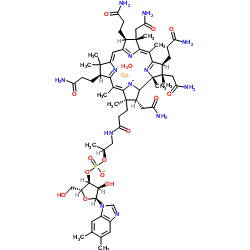The C57BL/6 genetic background confers cardioprotection in iron-overloaded mice.
Marco Musumeci, Sonia Maccari, Paola Sestili, Alessia Massimi, Elisa Corritore, Giuseppe Marano, Liviana Catalano
文献索引:Blood Transfus. 11(1) , 88-93, (2013)
全文:HTML全文
摘要
Chronic transfusion therapy causes a progressive iron overload that damages many organs including the heart. Recent evidence suggests that L-type calcium channels play an important role in iron uptake by cardiomyocytes under conditions of iron overload. Given that beta-adrenergic stimulation significantly enhances L-type calcium current, we hypothesised that beta-adrenergic blocking drugs could reduce the deleterious effects of iron overload on the heart.Iron overload was generated by intraperitoneal injections of iron dextran (1g/kg) administered once a week for 8 weeks in male C57bl/6 mice, while propranolol was administered in drinking water at the dose of 40 mg/kg/day. Cardiac function and ventricular remodelling were evaluated by echocardiography and histological methods.As compared to placebo, iron injection caused cardiac iron deposition. Surprisingly, despite iron overload, myocardial function and ventricular geometry in the iron-treated mice resulted unchanged as compared to those in the placebo-treated mice. Administration of propranolol increased cardiac performance in iron-overloaded mice. Specifically, as compared to the values in the iron-overloaded group, in iron-overloaded animals treated with propranolol left ventricular fractional shortening increased (from 31.6% to 44.2%, P =0.01) whereas left ventricular end-diastolic diameter decreased (from 4.1 ± 0.1 mm to 3.5 ± 0.1 mm, P =0.03). Propranolol did not alter cardiac systolic function or left ventricular sizes in the placebo group.These results demonstrate that C57bl/6 mice are resistant to iron overload-induced myocardial injury and that treatment with propranolol is able to increase cardiac performance in iron-overloaded mice. However, since C57bl/6 mice were resistant to iron-induced injury, it remains to be evaluated further whether propranolol could prevent iron-overload cardiomyopathy.
相关化合物
| 结构式 | 名称/CAS号 | 分子式 | 全部文献 |
|---|---|---|---|
 |
右旋糖酐铁
CAS:9004-66-4 |
H2O4S.Fe |
|
Deferasirox shows in vitro and in vivo antileukemic effects ...
2013-06-01 [Exp. Hematol. 41(6) , 539-46, (2013)] |
|
[Importance of the different i.v. iron generations for every...
2013-03-21 [MMW Fortschr. Med. 155 Suppl 1 , 18-24, (2013)] |
|
Use of intravenous iron supplementation in chronic kidney di...
2013-01-01 [Iran. J. Kidney Dis. 7(1) , 9-22, (2013)] |
|
[Safety aspects of parenteral iron supplementation therapies...
2013-06-01 [Dtsch. Med. Wochenschr. 138(24) , 1312-7, (2013)] |
|
Iron dextran treatment does not induce serum protein carbony...
2012-01-01 [Animal 6(1) , 79-86, (2012)] |